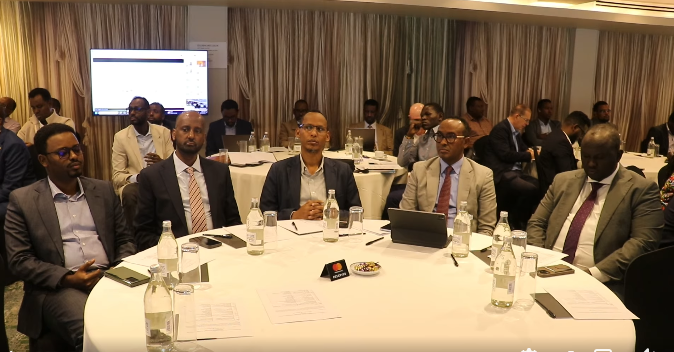NAIROBI, Kenya (SONNA) – The Commissioner of the Somali Disaster Management Agency (SoDMA), His Excellency Mahamuud Moallim, officially closed a high-level regional conference in Nairobi, Kenya, on Friday.
The conference, which convened experts, policymakers, and stakeholders from across the Horn of Africa, focused on the critical task of strengthening early warning systems for disaster risks. The event underscored Somalia’s growing leadership role in regional climate resilience and disaster preparedness.
In his closing remarks, Commissioner Moallim emphasized the Federal Government of Somalia’s strategic shift from reactive disaster response to proactive anticipation and mitigation.
“We can no longer afford to simply react to disasters. We must anticipate them,” said Commissioner Moallim. “Effective, multi-hazard early warning systems are the cornerstone of this proactive stance. They are our most vital tool to save lives, protect livelihoods, and build a truly resilient future for our people.”
The conference addressed the trans-national nature of climate shocks, such as recurring droughts and floods, which affect the entire region. The Commissioner highlighted the necessity of deep collaboration, calling for enhanced cross-border data sharing and a unified strategy among Horn of Africa nations to protect vulnerable populations.
H.E. Moallim affirmed that SoDMA, in line with the national vision of President Hassan Sheikh Mohamud, is fully committed to developing and implementing a state-of-the-art national early warning system. He noted that the agency is working closely with international partners, including the UN and IGAD, to ensure these warnings reach “the last mile”—from the capital to the most remote pastoral communities.
The meeting also served as a platform to review the progress of key initiatives, including the World Bank–funded Somalia Crisis Recovery Project (SCRP) and the ‘NAGAAD’ program, which are fundamental to building the country’s climate resilience infrastructure.
The conference concluded with a unified call to action, urging regional bodies and international partners to harmonize data systems and invest in technology to ensure that life-saving information is delivered to at-risk communities in a timely, accessible, and actionable manner.





